The Impact of ChatGPT on Nursing Students’ Literature Review Skills and Research Productivity in Pakistan
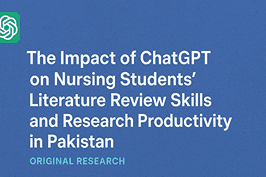
Authors:
Abstract
Background: Artificial Intelligence (AI) tools, especially ChatGPT, are increasingly being used in academia. Nursing students in Pakistan often face challenges in conducting literature reviews and maintaining research productivity. The integration of ChatGPT may provide support, but its impact remains underexplored.
Objective: To evaluate the effect of ChatGPT on literature review skills and research productivity among nursing students in Pakistan.
Study Design: Cross-sectional study.
Settings & Duration: Conducted in five nursing colleges across Lahore, Karachi, and Islamabad from March 2025 to July 2025.
Methodology: A structured questionnaire was distributed to 320 undergraduate and postgraduate nursing students. The survey assessed ChatGPT usage frequency, perceived improvement in literature review skills, research productivity (time management, output quality), and ethical concerns. Data were analyzed using SPSS v25. Descriptive statistics and chi-square tests were applied.
Results: Out of 320 distributed questionnaires, 287 were completed (response rate 89.6%). Among respondents, 68% reported improved understanding of literature synthesis, and 61% noted enhanced research productivity. However, 54% expressed concerns about over-reliance on AI tools, and 42% reported difficulty in verifying references provided by ChatGPT. Statistical analysis showed a significant association between frequent ChatGPT use and higher self-reported confidence in literature review writing (p < 0.05).
Conclusion: ChatGPT positively influences nursing students’ literature review skills and research productivity in Pakistan. However, concerns about ethical use and dependency highlight the need for guidelines and training.
Keywords: ChatGPT, nursing students, research productivity, literature review skills, Pakistan, artificial intelligence in education
Introduction
The academic landscape is rapidly evolving with the advent of Artificial Intelligence (AI). Among AI tools, ChatGPT has gained global attention for its ability to generate coherent text, summarize literature, and assist in research writing. Nursing students in Pakistan, like elsewhere, face multiple challenges while conducting literature reviews—ranging from limited access to resources, insufficient training in academic writing, and lack of mentorship in research methodology.
Literature reviews are foundational in academic research, yet they demand critical analysis, synthesis of evidence, and methodological rigor—skills that many students struggle to master. AI-driven platforms like ChatGPT offer potential assistance in these areas. However, they also raise ethical, academic integrity, and reliability concerns.
Despite global interest in AI-assisted education, limited evidence exists from Pakistan about how ChatGPT impacts nursing students’ learning outcomes, especially in relation to literature review skills and research productivity. This study addresses that gap.
Methodology
Study Design: Cross-sectional descriptive study.
Setting & Duration: Conducted in five nursing colleges—two in Lahore, two in Karachi, and one in Islamabad—over five months (March 2025 – July 2025).
Study Population: Undergraduate (BScN) and postgraduate (MSN) nursing students.
Sample Size: 320 students (calculated using 95% confidence interval, 5% margin of error, population proportion = 0.5).
Sampling Technique: Stratified random sampling across different years of study.
Inclusion Criteria:
Enrolled nursing students (BScN and MSN).
Students who had completed at least one research-related assignment in the past year.
Exclusion Criteria:
Students not familiar with ChatGPT.
First-semester students without exposure to research writing.
Data Collection Tool: A structured questionnaire with three sections:
Demographics (age, gender, year of study).
ChatGPT usage (frequency, purpose).
Perceived outcomes (literature review skills, productivity, challenges, ethical concerns).
Data Analysis:
SPSS v25 was used.
Frequencies and percentages for descriptive variables.
Chi-square test for association between ChatGPT usage frequency and confidence in literature review writing.
p-value <0.05 considered statistically significant.
Ethical Considerations:
Approval from Institutional Review Board (IRB) of each participating college.
Informed consent obtained.
Anonymity and confidentiality ensured.
Results
Response Rate: Out of 320 distributed questionnaires, 287 were completed (89.6%).
Demographics:
Mean age: 22.8 ± 2.4 years.
Female: 72%, Male: 28%.
Undergraduate (BScN): 68%, Postgraduate (MSN): 32%.
ChatGPT Usage:
Frequent users (daily/weekly): 61%.
Occasional users (monthly): 27%.
Rare/never: 12%.
Impact on Literature Review Skills:
68% reported improved understanding of synthesizing multiple sources.
59% noted better academic writing structure.
42% struggled with verifying references generated by ChatGPT.
Impact on Research Productivity:
61% reported improved productivity (time saved, better quality).
48% said ChatGPT reduced time spent searching articles.
36% admitted risk of dependency on AI-generated outputs.
Statistical Analysis:
Significant association between frequent ChatGPT use and confidence in literature review writing (p = 0.032).
No significant association between ChatGPT use and year of study (p = 0.187).
Discussion
This study highlights that ChatGPT is perceived as a helpful tool by nursing students in Pakistan for enhancing literature review skills and research productivity. The majority of students felt more confident in synthesizing literature and structuring reviews. These findings align with studies from the United States and Europe, where AI-assisted writing support has shown similar benefits.
However, concerns about over-reliance on ChatGPT and difficulty verifying references echo findings from international research, where the risk of academic dishonesty and compromised originality remain major debates. The challenge lies in striking a balance—leveraging AI for efficiency without undermining critical thinking.
Interestingly, our study found no significant difference across year levels, suggesting that both junior and senior students benefit equally from AI support. This indicates that early exposure to AI tools could be integrated into nursing curricula.
Strengths: Multicenter data collection across three major cities improves generalizability.
Limitations: Self-reported data may include bias. Longitudinal studies are needed to measure sustained impact on academic performance.
Conclusion
ChatGPT positively influences nursing students’ literature review skills and research productivity in Pakistan. While students benefit from improved efficiency and confidence, challenges related to accuracy, ethics, and dependency remain. Structured guidelines and faculty-led training are recommended to maximize benefits while maintaining academic integrity.
Recommendations
Nursing colleges should incorporate AI literacy into research methodology courses.
Faculty should train students to critically evaluate AI-generated content.
Regulatory bodies should issue guidelines for ethical AI use in academia.
Further longitudinal studies are required to assess long-term academic outcomes.
Acknowledgment
The authors acknowledge the cooperation of participating nursing colleges and students.
Conflict of Interest
None declared.
References (sample, Vancouver style)
Alshahrani A, Alqahtani N. The impact of AI tools on academic productivity: perceptions of healthcare students. BMC Med Educ. 2024;24(1):112.
Iqbal M, Shah S, Ahmed R. AI in higher education of Pakistan: challenges and opportunities. Pak J Med Sci. 2024;40(3):456–462.
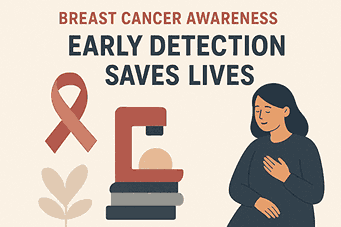
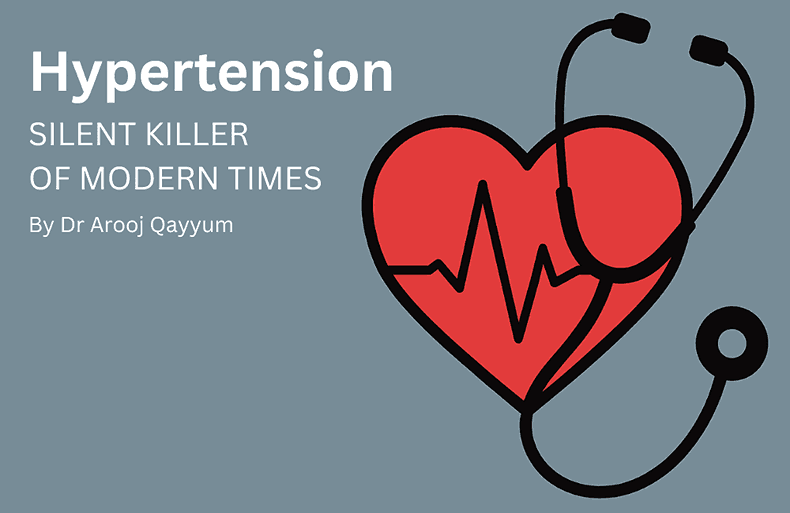
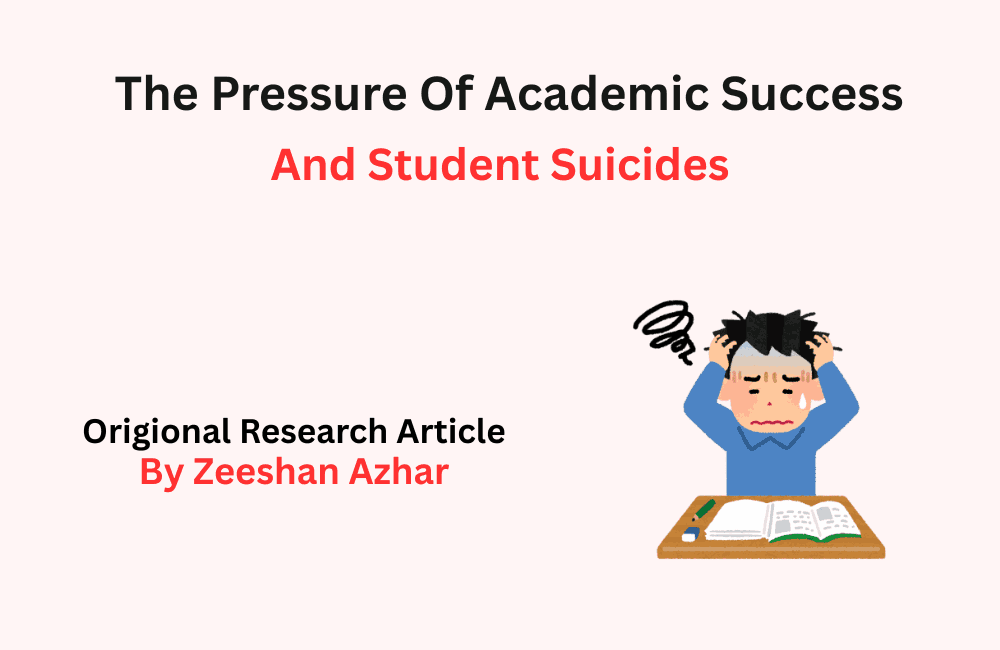

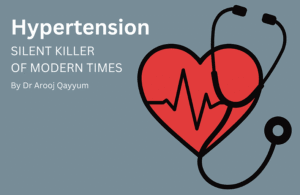
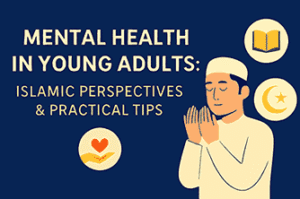

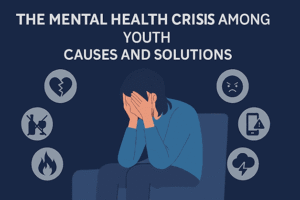
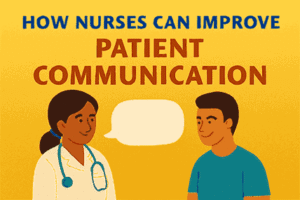
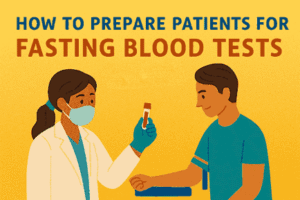

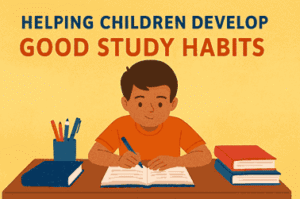

Post Comment